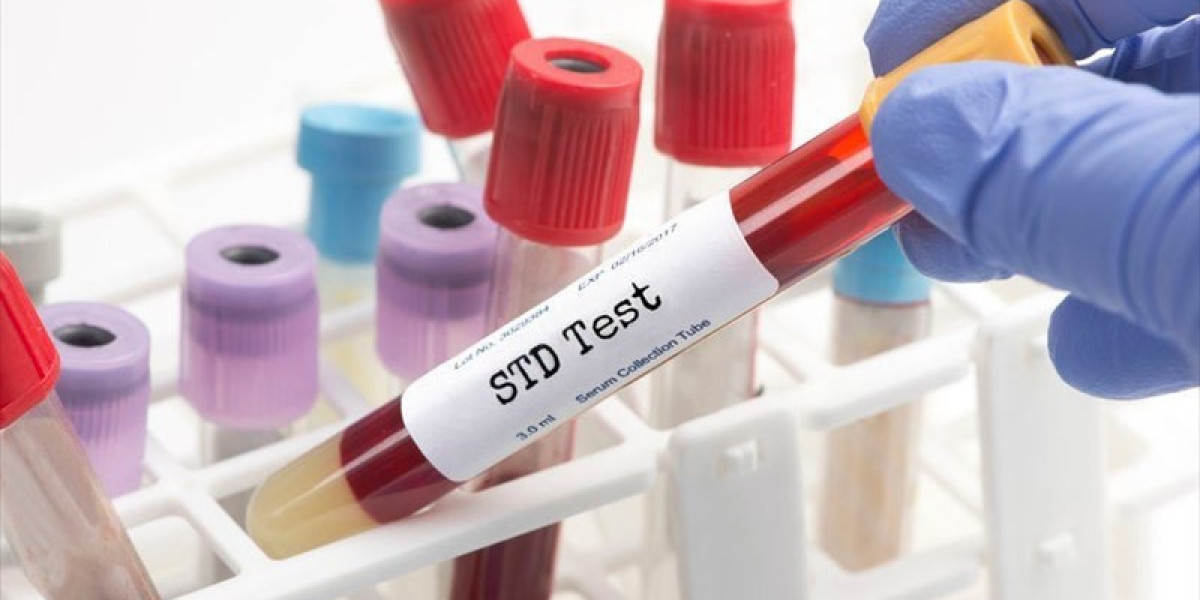Getting tested for sexually transmitted diseases (STDs) is a responsible step toward maintaining sexual health. But many people wonder: Do STD tests check for everything? The answer isn’t straightforward because not all tests screen for every possible infection. Understanding what’s included in an Std Test Dubai helps you make informed decisions about your health.
What Does an STD Test Typically Cover?
STD tests vary depending on the type of screening, individual risk factors, and healthcare provider recommendations. No single test detects all STDs, so most screenings focus on the most common infections.
Common STDs Included in Standard Testing
Most standard STD tests check for the following infections:
Chlamydia – A bacterial infection that often shows no symptoms but can cause serious complications if untreated.
Gonorrhea – Another bacterial infection that may not always present symptoms but can lead to fertility issues.
HIV – The virus that attacks the immune system, often included in comprehensive screenings.
Syphilis – A bacterial infection that progresses in stages and can have severe long-term effects.
Hepatitis B and C – Viral infections affecting the liver, sometimes included in broader STD panels.
STDs That May Require Additional Testing
Some infections aren’t part of routine STD tests and need separate screenings:
Herpes (HSV-1 & HSV-2) – Not always included unless specifically requested due to the need for swab tests or blood work.
HPV (Human Papillomavirus) – Often detected through Pap smears in women but has no standard test for men.
Trichomoniasis – A parasitic infection that requires a specific swab or urine test.
Mycoplasma Genitalium – A lesser-known bacterial STD that needs specialized testing.
Why Don’t STD Tests Check for Everything?
There are several reasons why a standard STD test doesn’t cover every possible infection:
Testing Methods Vary
Different STDs require different testing methods. For example, HIV is detected through blood tests, while chlamydia and gonorrhea often use urine samples or swabs. Combining all possible tests in one screening isn’t always practical.
Symptoms and Risk Factors Guide Testing
Healthcare providers tailor STD tests based on symptoms, sexual history, and risk factors. If someone shows signs of herpes but not syphilis, the focus will be on HSV testing rather than a full panel.
Some STDs Are Harder to Detect
Infections like HPV may not always show up in tests unless symptoms (like genital warts) appear. Similarly, herpes testing is most accurate during an active outbreak.
How to Ensure You Get the Right STD Test
Since no single test covers all STDs, it’s important to discuss your needs with a healthcare professional. Here’s how to approach testing:
Be Honest About Your Sexual History
Sharing details about your sexual activity helps determine which tests are necessary. Mention the number of partners, types of protection used, and any past infections.
Ask About Comprehensive Panels
Some clinics offer full-panel STD tests that include a wider range of infections. If you want thorough screening, inquire about these options.
Follow Up if Symptoms Develop
Even if your initial STD test is negative, new symptoms (like sores, discharge, or pain) may require further testing.
When Should You Get an STD Test?
Regular STD testing is crucial for sexually active individuals. Here are common scenarios when testing is recommended:
Routine Screenings
Annual STD tests are advised for those with multiple partners or unprotected sex. Some infections, like chlamydia, are often asymptomatic but can still cause harm.
After Unprotected Sex
If you’ve had sex without a condom or with a new partner, getting tested ensures early detection and treatment.
Before Starting a New Relationship
Mutual STD testing with a partner promotes transparency and prevents transmission.
If Symptoms Appear
Unusual discharge, sores, itching, or pain during urination are signs that warrant immediate testing.
How Accurate Are STD Tests?
Modern STD tests are highly reliable, but accuracy depends on:
The Type of Test Used
Blood tests, urine samples, and swabs have different detection rates. For example, PCR tests for chlamydia are over 95% accurate.
The Timing of the Test
Some infections, like HIV, may not show up immediately. Testing too soon after exposure can lead to false negatives.
Following Test Instructions
Providing a proper sample (like first-morning urine for chlamydia testing) ensures the best results.
Final Thoughts
While Std Test in Dubai are essential for sexual health, they don’t automatically check for every possible infection. Standard screenings usually cover common STDs like chlamydia, gonorrhea, HIV, and syphilis, but others may require additional tests. The best approach is to discuss your sexual history and concerns with a healthcare provider to determine the right screenings for you. Regular testing, open communication, and safe practices are key to staying healthy.
If you’re unsure which STD test you need, consider a comprehensive panel for peace of mind. Early detection and treatment can prevent complications and protect both you and your partners.












